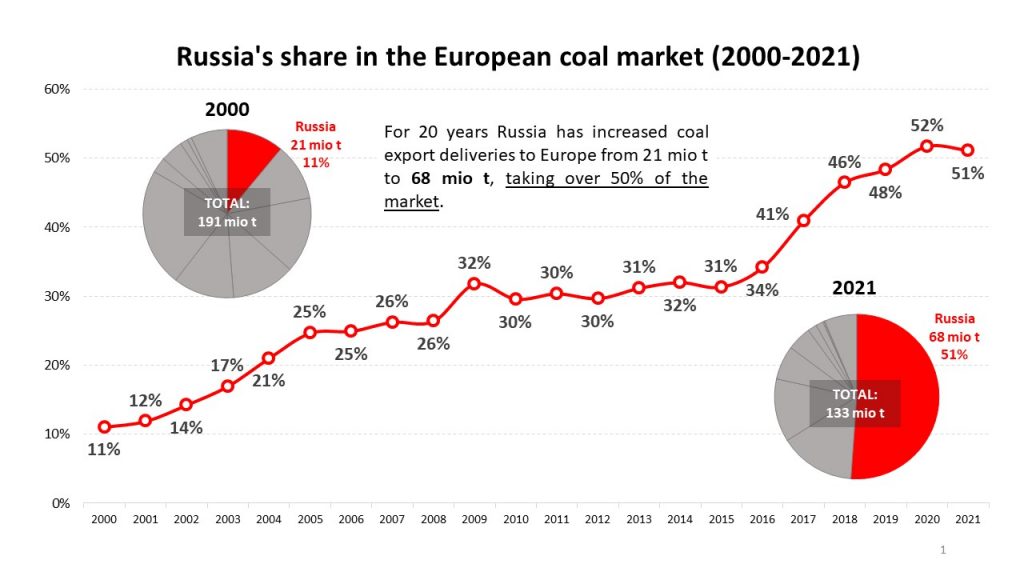Over the past 20 years, Russia has increased coal exports to Europe from 21 mio t in 2000 to 68 mio t in 2021, gaining more than 50% share of the market compared to 11% in 2000.
However, starting from August 10, 2022, export supplies to Europe may be halted as a result of the EU embargo on Russian coal, which provides for a ban on the purchase, import or transit of coal.
Driven by the sanctions, Russian exporters are already redirecting coal eastwards, primarily to the Asia-Pacific, but rerouting of all shipments in the amount of 68 mio t is a tough challenge due to infrastructural and logistical bottlenecks.

Thus, the railway carrying capacity of the Baikal-Amur Mainline (BAM) and the Trans-Siberian Railway (TSR), where modernization is proceeding at a slower pace than planned, is already 100% utilized, and deliveries from the northwestern and southern ports of Russia entail a significant increase in transportation costs caused by the longer routes and, as a result, more expensive freight. Also, amid Russia’s military operation in Ukraine, there is a sharp rise in the cost of insurance premiums, while shipowners are wary of providing dry cargo vessels to deal with Russian ports.
Following logistical issues, the country’s authorities again returned to the discussion of the Northern Sea Route project, which Vladimir Putin in mid-April ordered to implement as early as 2022. Previously, this new railway route was considered as a way to export coal and LNG from the Arctic to Europe, and now it is viewed as a measure to ease workload on the Trans-Siberian Railway.
Source: CAA
The post Russian coal suppliers search for new routes amid EU embargo first appeared on The Coal Hub.

0 Commentaires